The New York Liberty shocked the basketball world when news broke that championship-winning head coach Sandy Brondello had been fired just one year after leading the franchise to its first WNBA title. In a league where continuity and stability are usually treasured, the decision stunned fans and analysts alike.
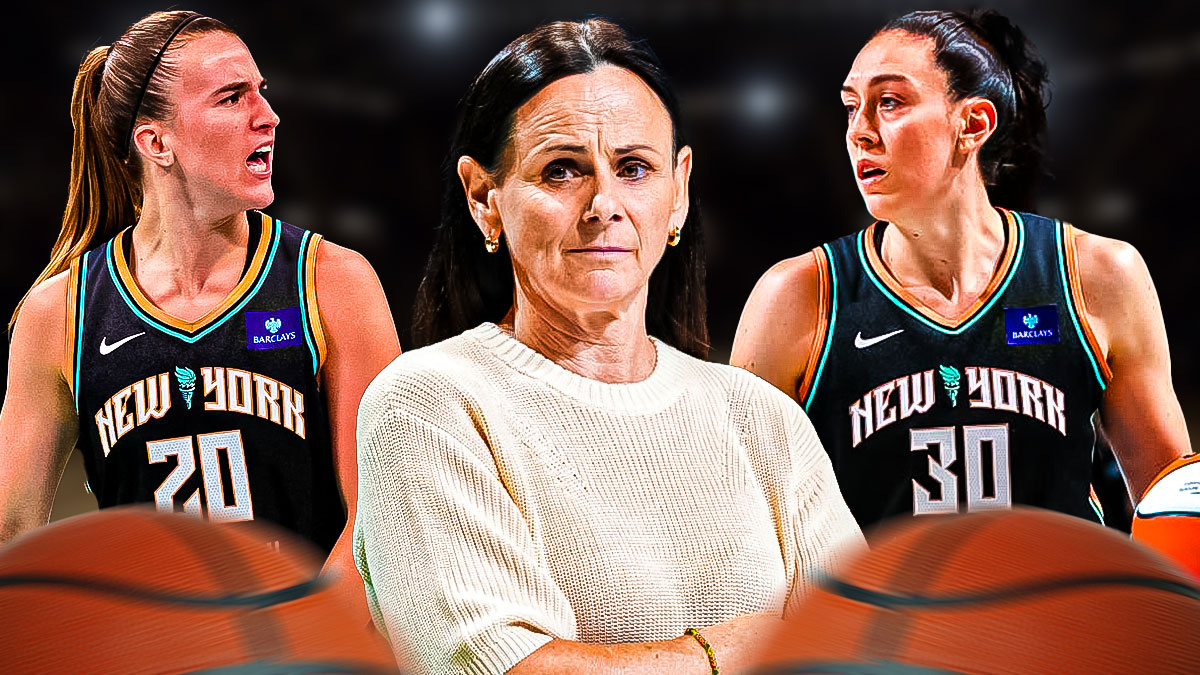
Brondello had been credited with molding a roster full of stars into a cohesive unit, balancing egos, and steering them through the highs and lows of a grueling season. Her sudden dismissal has already sparked intense debates about whether this was a basketball decision, a political move, or a story manipulated for clicks by those covering the league.
Brondello’s coaching career has been marked by resilience, adaptability, and results. After years of success in Phoenix, where she led the Mercury to a championship in 2014, she was brought to New York in 2022 with one mission: turn a talented but underachieving roster into contenders.
She succeeded. Under her leadership, the Liberty not only improved their win totals but also established themselves as legitimate threats to Las Vegas, the reigning dynasty of the league.
The 2024 title run was the crowning moment of her tenure, a validation of her methods and proof that she could win on the biggest stage. That’s why the firing has been called “a betrayal” by some Liberty fans who believe she earned the right to defend the crown.
What makes the situation even murkier is the role of the media in shaping its narrative. Within hours of the firing, one WNBA reporter published a piece suggesting that Brondello’s dismissal had deeper racial undertones, framing the story not as a basketball decision but as a flashpoint in the league’s ongoing cultural and identity battles.
The article quickly went viral, sparking heated arguments across social media platforms. Fans, analysts, and even former players weighed in, some agreeing that biases may have played a role, while others accused the reporter of deliberately race-baiting to drive clicks and engagement. In the hyper-polarized atmosphere of modern sports media, the article poured gasoline on a fire that was already burning hot.
The accusation of race-baiting has struck a nerve because it distracts from the basketball realities at hand. Brondello’s record, her adjustments in high-pressure games, and her ability to manage a diverse roster should be the primary focus.

But when coverage pivots to speculative narratives without concrete evidence, the discourse risks devolving into toxicity rather than constructive analysis. Critics of the viral article argue that painting the Liberty’s front office as racially motivated without proof is irresponsible journalism, particularly when Brondello’s firing could easily be explained by differences in vision, contract disputes, or internal politics unrelated to identity.
For the Liberty organization, this moment is fraught with complexity. The franchise has worked tirelessly to build credibility in a crowded New York sports market, investing heavily in star players like Breanna Stewart, Jonquel Jones, and Sabrina Ionescu.
The pressure to deliver championships consistently is immense, and even a single year of underperformance can spark drastic decisions. Sources close to the team suggest that despite the championship, there were disagreements between Brondello and management over rotations, player development, and long-term strategy. In an environment where every move is scrutinized, those disagreements may have been enough to justify a change at the top.
Brondello’s firing, however, raises larger questions about how much patience teams are willing to have with coaches. In professional sports, it has become increasingly common for organizations to prioritize immediate results over sustained culture-building.
This short-term mentality often leaves even successful coaches vulnerable if they fail to meet expectations in the eyes of ownership or executives. Brondello’s dismissal seems to be a prime example: winning a championship was not enough to guarantee job security if philosophical differences emerged behind the scenes.
The public fallout has also underscored the growing tension between media coverage and fan trust. Many fans feel that WNBA reporters, in an effort to draw attention to the league, resort to sensationalism and identity-driven narratives that overshadow the actual sport.
While conversations about race, equity, and representation are vital, they become problematic when weaponized for engagement. The backlash to the race-baiting accusation shows that fans want more nuanced reporting—coverage that acknowledges complex realities without oversimplifying them into polarizing soundbites.
Meanwhile, Brondello herself has remained remarkably composed in the wake of her dismissal. In a brief statement, she thanked the Liberty organization, praised her players for their commitment, and expressed gratitude to the fans who supported her tenure.
She avoided any direct criticism of management or the media, instead choosing to highlight the pride she felt in helping bring a championship to New York. Her grace in handling the situation contrasts sharply with the storm of speculation swirling around her, cementing her reputation as a professional who prioritizes the game over drama.
The players, however, have not been as restrained. Some Liberty stars reportedly voiced surprise and disappointment, feeling blindsided by the decision. Breanna Stewart, in particular, was believed to have developed a strong bond with Brondello, crediting her coach with creating an environment where players could thrive both on and off the court.
How the locker room responds to new leadership will be crucial, as the Liberty cannot afford to waste the prime years of their superstar core. Any missteps in hiring the next coach could jeopardize their championship window and undo the progress Brondello helped build.
As the league office monitors the fallout, there are concerns about the broader image of the WNBA. The league has fought hard to grow its audience, attract investment, and prove its legitimacy on a national stage. Stories framed around racial controversy, whether substantiated or not, can both draw attention and damage credibility.
For a league still working to expand its fanbase, being defined by divisive narratives rather than on-court excellence could be counterproductive. The challenge now is ensuring that the conversation around Brondello’s firing doesn’t overshadow the upcoming season and the incredible talent across rosters.
Looking forward, Brondello will likely not be unemployed for long. Her résumé speaks for itself, and several teams in the league are expected to consider her for future openings. Her ability to build winning cultures makes her an asset to any franchise, and her departure from New York may ultimately be another team’s gain.
For the Liberty, however, the pressure intensifies. Whoever they hire next must deliver immediate results, not only to justify the firing but also to quell the storm of criticism from fans and media. Anything short of another Finals appearance could be seen as a regression and validate the argument that removing Brondello was a mistake.
In the end, the firing of Sandy Brondello is more than just a basketball decision; it’s a flashpoint that reflects the tensions between performance expectations, media narratives, and public perception.

While the Liberty will move on with a new coach, the controversy surrounding this decision will linger, shaping how fans, players, and journalists view the organization for years to come. Whether this becomes a cautionary tale about impatience or an example of bold leadership will depend on what happens next season. One thing is certain: the Liberty’s gamble has ensured that all eyes will remain fixed on them, both on the court and in the headlines.
News
FEVERS’ DESPERATE MOVE! The Indiana Fever uses Caitlin Clark as a mascot, cutting a WWE-style promo to boost ticket sales. The *move is seen as a desperate attempt to attract fans.
The Indiana Fever find themselves in a bizarre and desperate situation heading into the postseason. Despite the fact that they…
WNBA’S RATINGS SCANDAL! The WNBA is facing a ratings scandal, with allegations of hiding true numbers. The situation is unfolding, with many questioning the league’s honesty.
The WNBA has spent the past year telling the world that it’s booming, that ratings are soaring, and that fan…
FEVERS’ HUGE PLAYOFF WIN! The Indiana Fever dominate the Atlanta Dream, with Lexie Hull and Makayla Timpson leading the charge. The Fever send the Dream packing, with a decisive victory
The Indiana Fever are officially here to stay in the playoff picture, and they just made a massive statement in…
Stephen A Smith HUMILIATES Angel Reese After Her Latest STUNT! She’s No Caitlin Clark!.He humiliates Angel Reese after her latest stunt, comparing her unfavorably to Caitlin Clark. The criticism is scathing, with many agreeing with Smith’s assessment.
Angel Reese has never been one to shy away from attention, but her latest stunt has fans and analysts alike…
FEVERS’ TICKET SALES STRUGGLE! The Indiana Fever is struggling to sell tickets for their playoff game, with fans reacting to Paige Bueckers not being unanimous Rookie of the Year. The situation is concerning.
The Indiana Fever have fought all season to reach the playoffs, but just as the moment arrives, troubling news has…
WNBA REFS UNDER FIRE! Despite being in the playoffs, WNBA refs continue to miss easy calls, sparking frustration among fans and players. The inconsistent officiating is a concern.
It might be the playoffs, but the WNBA referees continue to miss easy calls. For fans who have followed the…
End of content
No more pages to load


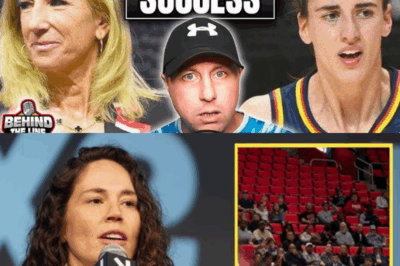
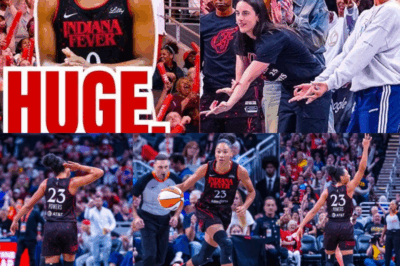
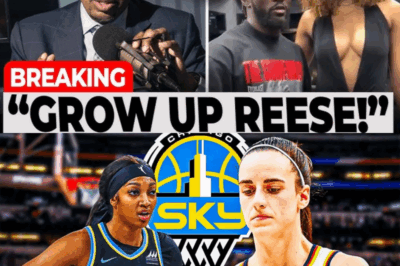
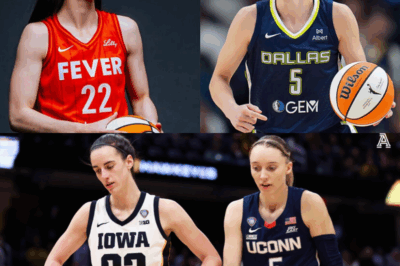

Leave a Reply